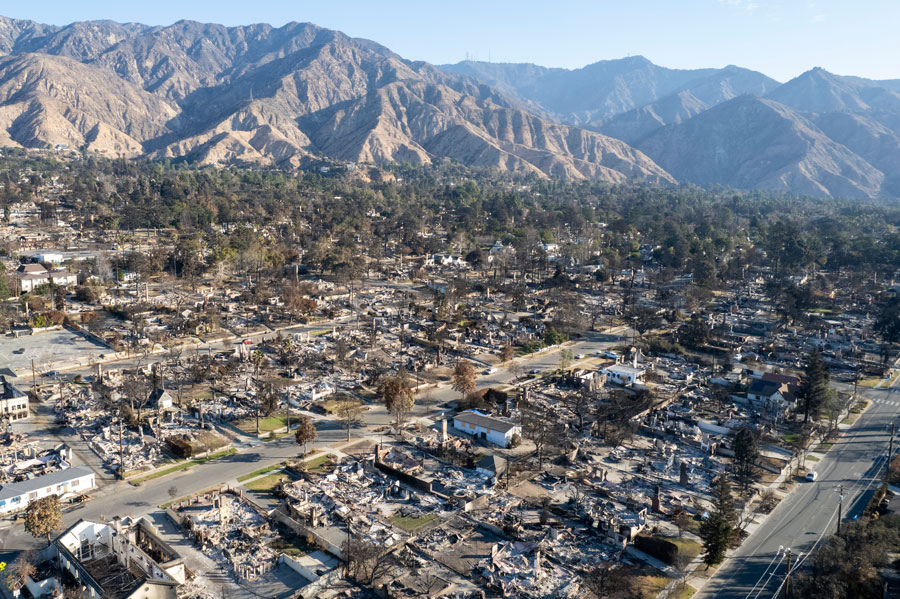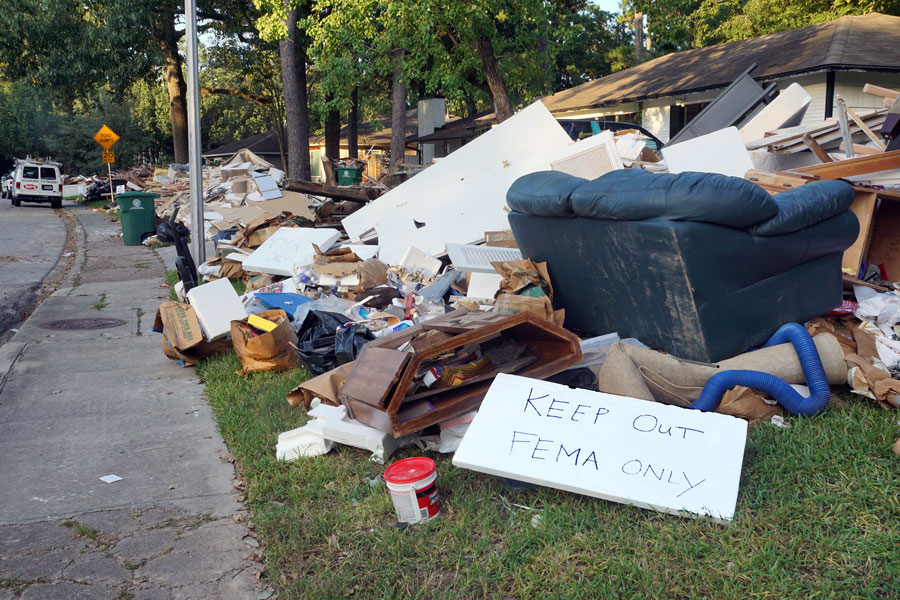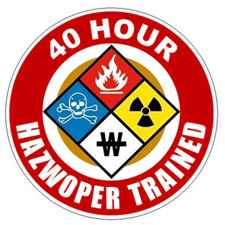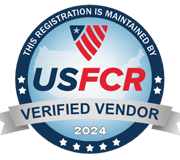
ALTADENA, CA – In January 2025, the Eaton Fire and Palisades Fire ripped through Los Angeles County, destroying thousands of homes and scorching tens of thousands of acres across Malibu, Pacific Palisades, Altadena, and Pasadena. While the flames have long since been extinguished, the environmental damage is still being uncovered.
Recent soil testing by Los Angeles County Public Health and the Department of Toxic Substances Control revealed alarming contamination in areas impacted by the Eaton Fire, including high levels of lead in as many as 80% of soil samples collected downwind of the burn zone. Other findings included arsenic, cadmium, thallium, and PAHs, which can pose long-term health risks to residents, especially children.
Even properties that survived the flames were affected by ash fallout and smoke contamination, creating hazards that require professional remediation.
What This Means for Property Owners
If your home or property was impacted by the Eaton or Palisades Fires, you may be dealing with:
- Toxic ash deposits in soil and landscaping
- Hazardous debris such as batteries, paints, and electronics
- Structural demolition and cleanup needs
- Risk of exposure to heavy metals and carcinogens
Before rebuilding, experts strongly recommend soil testing and remediation to ensure safety and compliance with local regulations.
How Mayfield Environmental Solutions Can Help
At Mayfield Environmental Solutions, we are already assisting Malibu and Los Angeles property owners with:
- Soil testing and contamination mapping
- Hazardous debris removal in compliance with EPA and DTSC standards
- Soil remediation and replacement for properties with elevated lead or metal levels
- Runoff and erosion control systems to prevent pollution from spreading
- Post-demolition cleanup to prepare sites for safe rebuilding
Relevant Data & Findings
| Topic | Data / Findings | Source |
|---|---|---|
| Soil Lead Exceedances | In Altadena, among lots cleared of debris in the Eaton Fire area, ~20% of soil samples were above 80 ppm lead (state residential safety standard). For homes that survived the fire, ~38% of samples exceeded that level. | Southern California Public Radio: Lead levels in soil exceeded state standards in Eaton Fire burn zone, LA County reports. https://laist.com/news/climate-environment/lead-levels-soil-altadena-palisades-fire-la-county-report |
| High Frequency of Lead in “Intact Parcels Downwind” | “High frequency lead exceedances” in intact parcels in areas downwind of Eaton Fire. | Los Angeles County Department of Public Health: Public Health Releases Final Findings of Soil Testing in Fire- Impacted Areas http://publichealth.lacounty.gov/phcommon/public/media/mediapubhpdetail.cfm?prid=5138 |
| Number of Homes / Structures Affected | Eaton Fire destroyed ~9,418 structures; ~1,071 additional structures damaged. | Wikipedia, the free encyclopedia. Eaton Fire https://en.wikipedia.org/wiki/Eaton_Fire |
| Acreage Burned | Eaton Fire burned ~14,021 acres; Palisades ~23,448 acres. | Los Angeles County Coordinated Joint Information Center: Media Update: Eaton and Palisades Fires https://recovery.lacounty.gov/2025/01/24/media-update-eaton-and-palisades-fires-1-24-25/ |
| “Clean” Zones vs Hot Spots | The Palisades fire zone — at least in soil testing — came back essentially clean with no large‐scale findings above safety thresholds; Eaton has more hotspots. | LA County releases final findings of soil testing in Eaton and Palisades burn areas https://abc7.com/post/la-county-releases-final-findings-soil-testing-eaton-palisades-burn-areas/17814905/ |
| Older Housing & Lead Risks | More than 70% of homes in the Eaton Fire burn zone were built before 1979, when lead‐based paint was common. That increases risk of lead in soils when buildings burn. | LA County releases final findings of soil testing in Eaton and Palisades burn areas https://abc7.com/post/la-county-releases-final-findings-soil-testing-eaton-palisades-burn-areas/17814905/ |
| Economic / Property Damage Estimates | The LAEDC report estimates total property and economic losses for the 2025 LA wildfires in the tens of billions of dollars. | LAEDC Institute for Applied Economics: Analysis of the Impacts of the LA Fires https://laedc.org/wpcms/wp-content/uploads/2025/02/LAEDC-2025-LA-Wildfires-Study.pdf |
Additional Findings & Why They Matter
Recent reports and soil-analysis results from Los Angeles County shed light on just how severe some of the lingering hazards are — especially from lead contamination — and why cleanup is more than a rebuild.
- In the Eaton Fire zone, about 20% of soil samples on lots cleared of debris exceeded the California residential lead standard (80 parts per million), and about 38% of samples from homes still standing also surpassed that level.
- Homes built before 1979 (over 70% in the affected Eaton-Altadena area) are especially vulnerable, since lead‐based paints and materials were widely used.
- The Eaton Fire destroyed or badly damaged nearly 9,500 structures alone, and tens of thousands more homes remain standing but exposed to ash, debris, or smoke fallout.
- The combined acreage of the Eaton and Palisades fires exceeded ~37,000 acres — large enough that wind-blown ash, runoff, and soil displacement affect communities beyond just the burn boundary.
- Even in zones where the fire did not destroy structures — homes just outside the immediate fire perimeter but downwind — elevated lead levels are showing up, suggesting that fallout and smoke carry risk beyond visibly burned areas.
Moving Forward After the Fires
Recovering from the Eaton and Palisades Fires will take time, but with the right environmental cleanup partner, property owners can take confident steps toward rebuilding.
If you or your community were affected, Mayfield Environmental Solutions is here to help ensure your land is safe, compliant, and ready for the future.










